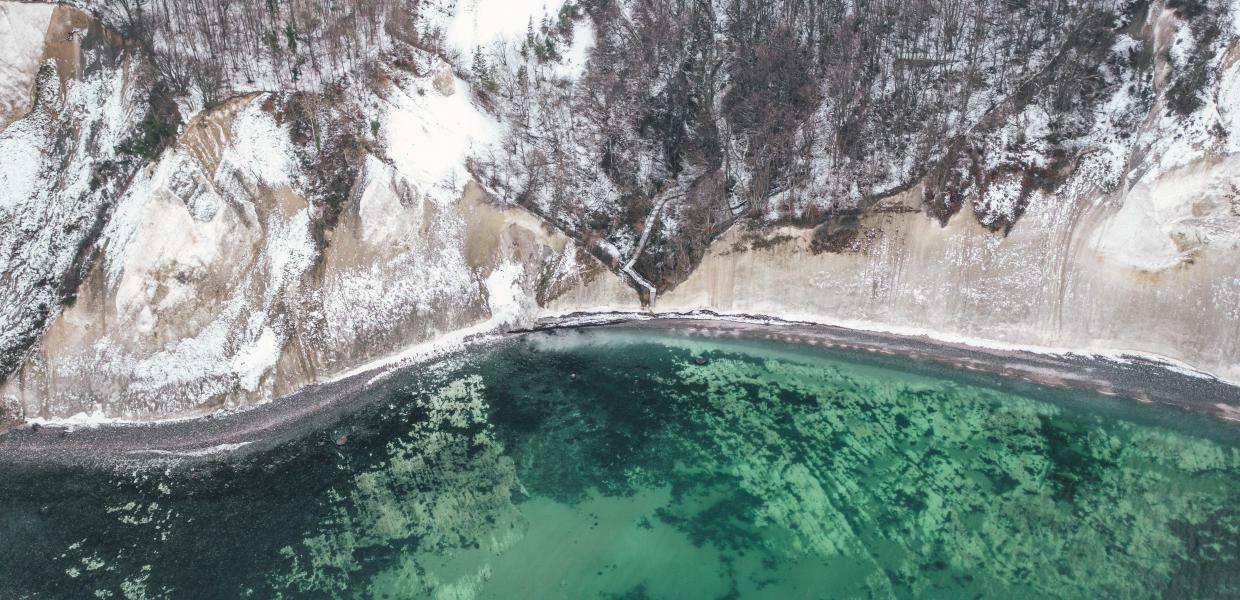Go fossil hunting!
Go fossil hunting in South Zealand & Møn’s huge chalk layers and find relics of the past that have been there for millions of years.
Møns Klint is a very popular destination, and it’s easy to see why! The beautiful white cliffs that rise above the sea are something special – and not just on a Danish scale, but internationally as well.

Photo:Mads Tolstrup
From the top of Møns Klint, there are several places that provide access down to the beach, where you can truly enjoy the overwhelming view of the vertical walls of the cliff. The most popular place to go down to the beach is at Maglevandstrappen near GeoCenter Møns Klint. There are no fewer than 497 steps to walk up, and of course, down again. See a map of the stairs along Møns Klint here.
At the top of Møns Klint, a 267-metre-long boardwalk has been constructed with several lookout points – perfect for wheelchair users, those with walking difficulties and parents with prams. There is ample opportunity here for everyone to enjoy the impressive view from one of Denmark’s, and the world’s, greatest natural wonders: Møns Klint.
To take best care of nature, we recommend that you park your car either at GeoCenter Møns Klint or Liselund Castle and walk from there.
70 million years ago there was a tropical sea where Denmark is now, inhabited by squid, sea urchins, mussels and algae. Slowly, over millions of years, the skeletons from these microscopic algae sank to the seabed and formed the enormous layer of chalk that Møns Klint consists of and on which large parts of Denmark rest today.
You can go fossil hunting along the cliffs and beach and find 70-million-year-old fossilised remains of marine animals – especially sea urchins and belemnites. You can also visit GeoCenter Møns Klint, which tells the story of the incredible life that forms the basis of Møns Klint: the dinosaurs and the enormous meteor impact that caused their extinction.
With the appointment as Denmark’s first biosphere area in the summer of 2017, UNESCO lists Møn and the neighbouring islands as a unique place in the world. A place of outstanding natural beauty, where the locals manage to live and work in a sustainable collaboration with their environment. Within the area, you can discover the most important Danish ecosystems both on land and in the water, as well as a wealth of rare animal and plant species, which is precisely one of the characteristics of a biosphere area.
Longitude: 12.551619
Latitude: 54.95878